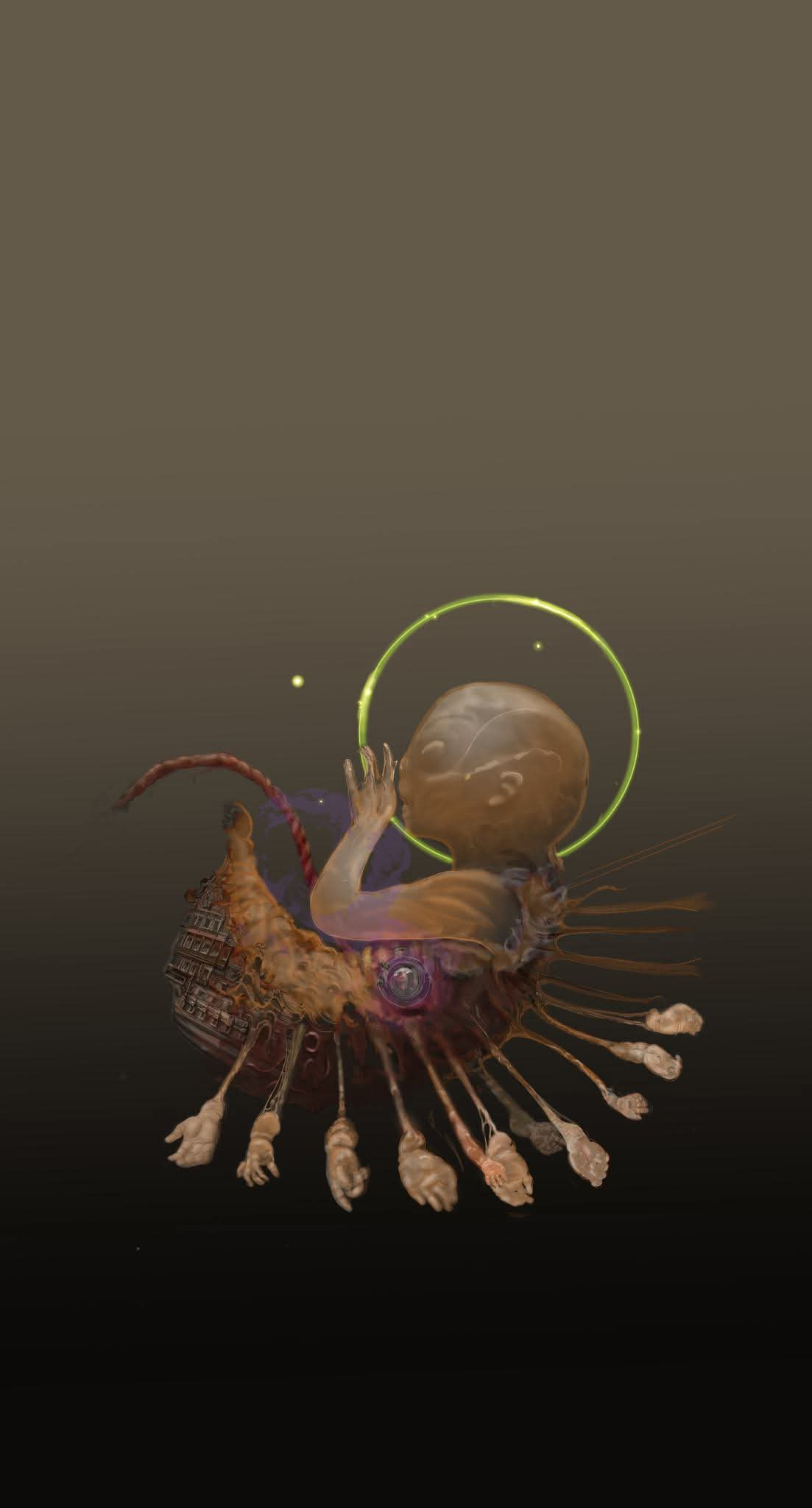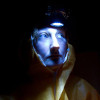By Adam Browne

There are drugs that enter us not by mouth or nose or vein, but through the organs of our senses. The euphories experienced during a rousing shipwide rendition of Drunken Sailor or Poor Old Man — the crew belting it out with all their hearts; even the prisoners singing in the brig; and you among them, a pirate too!, shouting out those old songs! — may be identical to those afforded by a nightful of opium.
Or more euphoric! Ah, how fondly I remember those nights, reader! Would that there were as many voices now as there had been!
Art is more powerful than any drug, for it not only alters perception, but awakens it. It swings your point of view to reveal new vistas. If a nightful of rum and shanties were allowed to enter the body directly, as opium does, the brain would be set ablaze in the kiln of the skull! Ha, to see smoke pouring from the ears!
And in fact poisonings sometimes do occur. “Stendahl syndrome”, for instance, is a grave condition caused by exposure to overmuch artistic beauty.
And there is the disease that comes of too much reading, first described by the Spanish writer de Cervantes, which intoxicates the sufferer as if “they had drunk too deeply of the bottle…”
But this is no surprise when we remember that the first books were printed on a winepress!
Reader, the ship’s librarian was drunk on books.
His cabin was his library and his wine cellar and his harem besides.
It was a rich litter of relicts from his former career as a book-runner — nor was he alone in this briefly profitable pursuit. For we see in the history of pirates that Henery the Dread and Captain Splashbeck were also book smugglers in their early years; but where they left the book life to go out and make a larger noise upon the world, the librarian Hippolyte Culprit was allowed no such freedom.
Born in cruel servitude to a twisting disease, he was crippled and knotted of the body, and more or less confined to his cabin.
The cabin was far belowdecks, reader. I lost track of how deeply I travelled to get there.
Down and down, into the Vivisectress! — a pirate ship worthy of the exclamation mark in her name! A many-times ancient galleon! — born and born again, hull in nested hull like the rings of a drowned tree!
Once, she’d been a Roman trireme, once a carrack, once even a temple ship (bloodiest ship of all!) … and so those lives revealed themselves to me in marks and carvings as I descended — in middens too old to stink — in shipbuilding styles. Oak gave way to cedar, ropes to twisted gut, nails to wooden pegs, to carved ivory as still deeper I went — past shrines and secrets — through shadows older than myself; along corridors loud with creaks and wooden crackles and groans.
At last I reached the door and banged at it. Hearing a grunt from within, I entered a low flat broad place. It was luxurious and sordid; ill-used books lay in voluptuous attitudes to all sides — wide open or face down on the floor…
Then the Grotesque Librarian announced himself — ‘What are ye about!?’ — cranking forward over a carpet of battered atlases. Tractless seas tore under his twisted feet. Here be monsters.
‘Whass this interruption?’ The word was disgusting to him!
He lit a small hanging lantern to see me. His body was a distorted shadow in its swinging light, and his loaf-shaped head was canted at the angle that subtended between madness and a certain species of genius. ‘Wha’s this person come a-callin’ at me private cabin fer,’ he hissed, ‘jus’ when I were busy a’readin?’
‘I’m here from the captain,’ I said.
‘That so?’ He lifted his face. ‘So, the captain, is it? Good Cap’n Blight! Gah, I’d almost forgotten ‘bout the bugger! How long’s it been since I ‘eard from ‘im? More’n a year, I shouldn’t be surprised!’
‘Did you say “Blight”?’ I cried, amused. ‘Old Blighter’s not captain any more! He hasn’t been for an age!’
‘Oh. That so?’
‘Of course! There’s two captains since! Blight captured a king’s ship, the HMS Corflute. He took her for himself. Did you not know this? Passed the captaincy on to Drunken Pete, who passed that office on to our current captain. I hear tell Blight died in battle with some Frenchies a year back or so.’
Culprit paused. ‘That’d be why I’ve not ‘eard from ’im then,’ he said.
Moving with care for his articulum passio, he seated himself on an old stool. ‘All righ’,’ he said, packing his pipe, ‘so who’s skipper now? — no, wait, don’t answer, for so much time has gone by that the name won’t mean nothin’ to me… God, how the years do slipper by down here. They get slicked with the shipslimes, an jus’ slipper by.’
‘Perhaps,’ I said, ‘but I don’t have years in which to complete my mission.’
‘Oh, ‘ang yer bloody mission!’ The words hung smoky lilac grey in the bad air. ‘What do I care for orders from Captain Noname?’ In his seat, he gave a mocking salute. ‘Oh, at once, sir! Oh, aye bloody aye, sir!’
‘Very well,’ I said. ‘I will return abovedecks and tell Captain Bain-Marie, our resourceful and enormous skipper who takes amusement in the lowest cruelties, that you refuse his request.’
‘Ah,’ he said. ‘Aye, well, that puts a different complection on things, don’t it? An’ I will allow as to bein’ a little curious.’ He lit the pipe and puffed it to life. ‘Awright then, why don’t ye tell me what yer Captain Bain-Whatsit want o’ me?’ His foul smoke addled the air as I explained.
***
Reader, my shipmates were going missing.
Our shipmates! One after another. Holes appearing in the roll calls, hammocks hanging empty, swinging like used cocoons. Men and women both — one after another — disappearing! — poof! — like a series of magic tricks! Marmaduke Thankless — poof, he was gone! Madame de Despondanteur — poof! — she was gone… Gnatcatcher Snadge, the Terrible Londoner — poof! — and his lifelong companion the cunning Midshipman Forepaugh! — poof! — gone and gone!
All were the hardest sort of villains, for whom wickedness was gallantry!
Ah how we missed them!
Searches were conducted. Nothing was discovered save for a single earring and a tin of the Madame’s favourite marmalade. Had they fallen overboard? — the question was met with derision. What, in calm waters, with no one seeing them fall!? Nor were there signs of blood or other remains.
And then! Poof! — it happened again! — poof! — more missing! — Mistress Narlene! Poof! — Midshipman Clatch and the giant Hurqueboire…! Poof! and poof!
Their absence was a vacuum that drew out superstitious panic. Ghosts were heard in the bulkheads and the Mate’s parrot screamed phrases designed to cause unease: ‘Awk, gawn, they be! Ha! Ha! Gawn an’ swallered an’ fer good an’ all, awk…!’
Then one night, I was called to the captain’s cabin.
I went there, in the afterparts of the ship.
The sentry at the door admitted me. I found Captain Bain-Marie (for that was his name) standing at his chart table.
‘Ah, there ye are, Cragshank!’ he said. ‘Yer to go down to the cabin of Hippolyte Culprit.’
‘What?’ I said1. ‘I thought he was dead.’
‘No, Culprit is too old to die,’ he said, whatever that meant. ‘Come, cast an eye on these charts.’
I went to the table, where Bain-Marie loomed over me, big as a walrus. Either captain or ballast, those had been his career options when young.
I moved a candle closer and studied the charts. I could make no sense of them for a minute, until, with sudden intuition, I saw that they showed the movements not of ships, but of the missing pirates in the days and hours before they were discovered gone.
‘These’re the quartermaster’s drawings,’ the captain said, tracing a crinkled weblike line with his finger. The quartermaster, Boris Snitzor, was a most meticulous man. ‘See,’ the skipper said, ‘how the paths wander and diverge according to their ranks and duties and the like. But then look here, see, jus’ afore they disappear, they all converge on the one place —
***
— ‘No, wait, don’t tell me!’ Hippolyte Culprit cut in, mockingly. ‘Did they all … converge on This Very Cabin!?’
I bristled. My moustache stood out from the sides of my face and sparks flew from its tips. But before I could speak, Hippolyte laughed. ‘Oh, come, lad, be calm, take not my little jests amiss! For if ye rip me throat out with ‘at ‘ook o’ your’n, I’ll ne’er be able to tell ye ‘ow I can ‘elp yer wi’ yer mission!’
‘All right, then, damn you,’ I said. ‘Tell me.’
‘Aye, well,’ he said, taking a thoughtful pose. ‘It were when ye said ‘em names. What was it? A Madame Someone, s’at right? An’ ye said a giant, too, didn’t ye? Oh, aye, I remember ‘I'm awright — an’ ‘em others too! They all come to visit me ‘ere some time or other. But as for when those times were, I am unable to accommodate ye, on account of the slipperiness of the years, as I have mentioned.’
With sudden energy, he rose from his stool and looked about. ‘Whar is ‘e, whar is ‘e?’ He walked around the cabin, his body on a lean, italicised to emphasise the severity of his condition. Kicking books aside and toppling great piles of them, at last he found the one he wanted. ‘Got ‘im!’ He returned and handed it to me. I held it with reluctance. It was small and the same grey as him.
‘What is this?’ I said.
‘‘Tis the book A True History of the Wood of the One True Cross! Says it right there on the cover! Can’t ye read!?’
‘I see the title, you fool, but what does it have to do with my missing crewmates!?’
‘Well,’ he said, ‘this be the book ‘em missin’ pirates all come to look at — afore they went missin’, o’course!’
I was aghast. My moustache flared. ‘What do you mean?’ I cried. ‘They read this book, then left? Without further word? Every one of them?’
‘Aye, jus so.’ He nodded, eyes glinting in the light of my moustache. ‘An’ tha’s the last I saw o’ any o’ ‘em too.’
I looked at the book again. I shook it upside down, but no scraps of paper fell out. I punched my hook into the spine, opened the book, and flipped roughly through the pages. I found no handwritten notes or drawings. At last, I resorted to scanning the text itself.
I saw that the “Wood of the One True Cross” was “a fragment of the cross on which Christ died”. I learned that the fragment was lost, but was later discovered by the mother of Emperor Constantine in 326AD. I learned that it was fantastically valuable.
I paused. ‘Ah,’ I said.
I sat on the librarian’s stool and read further:
After its discovery, the fragment was acquired by the church. The church sold the fragment, then sold it again, and then again, and again so many times thereafter that, as the scholar Erasmus joked, “If all the pieces were gathered together, they would fill a ship.”
But the answer to this was obvious, for, as Cyril of Alexandria said, “…as the loaves and fishes were multiplied by Christ, so that miraculous property attaches also to this Wood. No matter how much is removed, the whole will never decrease!”
If all the pieces were gathered together, they would fill a ship… Or they would make one, I thought.
I looked up. Hippolyte Culprit was looking at me, silhouetted by the glow of the lantern. ‘So,’ he said, ‘can ye ‘ear it now?’
‘Hear what?’ I said.
‘Can ye ‘ear it?’ He cranked forward a step, peering at me. ‘They all begun to ‘ear it, after they read the book.’
The ship reeled, caught by a swell; or was it I who reeled? I stood to face him, holding onto a bulkhead. ‘I hear nothing but for the natural creaking and groaning of the ship’s timbers,’ I said.
He smiled. ‘Aye, ‘em be timbers yer ‘earin’, but not in the way yer thinkin’. An’ they ain’t anywise natural neither.’
The creaks and groans grew — not louder, but clearer.
‘Think ye,’ the librarian said, ‘’em sounds as yer talkin’ of are abovedeck sounds, like, from the masts and shrouds an’ bucklets and such. Ye ain’t meant to ‘ear such sounds down ‘ere, are ye? “As quiet as the belowdecks shipbowels,” ain’t that what they say?’
Creakings, crackles, wetter than they should have been, I thought. And the groans were more voicelike than wooden.
***
At this point, reader, I experienced a moment of inward stillness which I here use to touch on the subject of déjà vu.
The sensation is sometimes thought to be a sign of damage to the brain, but we know this is not the case, for I have long been subject to it.
With time, I have become convinced that déjà vu is not a distortion of perception, but a faculty of it.
If it is an illusion — of reliving the present moment — it brings you closer to the truth, for it gives you the ability to view the here and now with the clarity of hindsight.
With the clarity of hindsight I observed the library and the events then unfolding. The grey colour of dread was a stain under everything, bleaker than the bachelor dinge of the room, and touching even the flame of the little lantern. Disgusted, I shook the book from my hook, then turned and went to the door.
The sounds were stronger in the corridor, stronger still in the companionway that led to the deck below.
I went down the stairs into an austere ruin lit by slimelight. The bladderwrack that was the source of this effulgence made for slippery footing. Carefully, I made my way to yet another stairwell, like a tunnel on a sharp decline, the steps fairly carpeted by that flocculent weed, which thrived and even flowered at its lower parts.
I went down into a deck that was not like a part of any ship at all.
It was a grotto, the ceiling a sweep of living mother-of-pearl pranked with apertures that seemed to be airholes for a dark-velvet, curling sort of creature. An accident of the ship’s evolutions, this deck had caught old tidal life in its hulls. It was partitioned, and its beams were richly slung and bannonned with the weed, which performed its own curling advancements and evolutions as I went deeper in, through a leathery forest of diagonal trees, treading over roots that bound the timbers of the deck — and even the timbers were alive.
I proceeded deeper, the planks and beams creaking and groaning, visibly flowing according to the growth patterns of giant trees. Surely, there was no question now but that they were made of the Wood of the One True Cross.
I was awash in a turbulence of timbers, slow-rushing beams and bulwarks, capstans and carlins — and now I heard a voice over the noise of them, or else it was a part of those noises.
I listened. It called again.
‘Hullo!?’ I shouted.
Nothing.
Forward I went, into the fluid maze. ‘Marmaduke Thankless, is that you!?’ I called. ‘Madame de Despondanteur — or Gnatcatcher Snadge, the Terrible Londoner, can you hear me? Please answer!’
Then a figure ahead. But no, when I approached, it was just a statue. Jesus on the Cross, carved most cunningly into the wall. Or yes, I saw -- grown from it. It was living art, a wooden christ-buboe swollen in a mad euphoria. A mark of good portraiture is when its eyes follow you around the room; and so His followed me; and He moved besides, and spake in words not for the ear, but carved into the wood above him: ‘Theft is sin, and the wages of sin is death.’
I turned away, as I had long ago, and went on. I passed under arches not made by man, which sweated beads of amber. The thieves must have come this way, I thought. I smiled to think of them, my sly shipmates, who’d thought to shave off slivers of that miracle-wood to sell it by the inch. But they had reckoned without the turnings of this place, for it folded itself in spirals, and the deeper one traveled, the further one strayed from time.
So I discovered when I found them, sad to say, lying in a corridor or tucked in a nook or a housing. All were long-dead, years-dead, mummies and skeletons — the giant Hurquebour was the most recognisable of them — and I left them where they lay, only to find their descendants. The born-below, children of the wood, of pirates lost and bound together. Ideal pirates, bred for it, born with hook hands and naturally occurring eyepatches — they were frightful as a gang of furies.
Roaring in a language of fluent curses, they chased me. I ran, I know not how long. I wished for escape, but travelled deeper in. There was a confusion of shadows. I stumbled into a large space. It was made of forms that were grotesque the way some orchids are — an irreproachable excess. But the same could not be said for the thing it housed.
Here, at the centre of the wooden womb, the shipfoetus turned in her sailcloth caul, ropen umbilical reaching above, her babyhanded oars making gentle swimming motions as she opened her eyes and regarded me by the slimelight.
Then it was gone — no, I was gone! More running … I know not, I know not… Then staggering, then collapse. I was lost.
I would have died of thirst or at the hands of the natives, had not my déjà vu saved me.
I felt it begin. This was the one environment in which it was not illusion. I stood, and by its clarity, saw the twists and turns I had taken on my journey inwards. So I retraced my steps, and made my way back to the deck, and the companionway, and upwards.
The journey to the upper decks was as nothing compared to the one I had just taken.
And now days have passed, and it is night again, and I am in the crowsnest with my face full of stars. I should be resting below, but I do not sleep easily.
The rhythm of the ship has changed. And sometimes, when the hull groans and the beams sweat, I hear the faint creak of tiny baby-jesus oars in the air.
1. Terms like ‘sir’ are not spoken in a pirate ship.
![]()
About the Author
Adam Browne
 Adam Browne, born in the early 1960s, lives in Melbourne.
Adam Browne, born in the early 1960s, lives in Melbourne.
He is an award-winning writer, and has published numerous sff short stories and three books.
His stories have won the Aurealis and Chronos awards, and two, 'Orlando's Third Trance' and 'Space Operetta', have been adapted as films, the latter, titled 'The Adjustable Cosmos', screened at the Sydney International Film Festival and the Anima Mundi animation festival.
'How the Ship got Heavy-Laden, by Saltpetre Cragg, Pirate and Journalist' will be part of the book 'The Ship's Big Steaming Log', which accompanies the play 'Bladderwrack", opening in Melbourne in November this year (2025).
![]()















 Emma Louise Gill (she/her) is a British-Australian spec fic writer and consumer of vast amounts of coffee. Brought up on a diet of English lit, she rebelled and now spends her time writing explosive space opera and other fantastical things in
Emma Louise Gill (she/her) is a British-Australian spec fic writer and consumer of vast amounts of coffee. Brought up on a diet of English lit, she rebelled and now spends her time writing explosive space opera and other fantastical things in Geraldine Borella writes fiction for children, young adults and adults. Her work has been published by Deadset Press, IFWG Publishing, Wombat Books/Rhiza Edge, AHWA/Midnight Echo, Antipodean SF, Shacklebound Books, Black Ink Fiction, Paramour Ink Fiction, House of Loki and Raven & Drake
Geraldine Borella writes fiction for children, young adults and adults. Her work has been published by Deadset Press, IFWG Publishing, Wombat Books/Rhiza Edge, AHWA/Midnight Echo, Antipodean SF, Shacklebound Books, Black Ink Fiction, Paramour Ink Fiction, House of Loki and Raven & Drake My time at Nambucca Valley Community Radio began back in 2016 after moving into the area from Sydney.
My time at Nambucca Valley Community Radio began back in 2016 after moving into the area from Sydney.
 Ed lives with his wife plus a magical assortment of native animals in tropical North Queensland.
Ed lives with his wife plus a magical assortment of native animals in tropical North Queensland. Tim Borella is an Australian author, mainly of short speculative fiction published in anthologies, online and in podcasts.
Tim Borella is an Australian author, mainly of short speculative fiction published in anthologies, online and in podcasts. Sarah Jane Justice is an Adelaide-based fiction writer, poet, musician and spoken word artist.
Sarah Jane Justice is an Adelaide-based fiction writer, poet, musician and spoken word artist. Alistair Lloyd is a Melbourne based writer and narrator who has been consuming good quality science fiction and fantasy most of his life.
Alistair Lloyd is a Melbourne based writer and narrator who has been consuming good quality science fiction and fantasy most of his life. Tara Campbell is an award-winning writer, teacher, Kimbilio Fellow, fiction co-editor at Barrelhouse, and graduate of American University's MFA in Creative Writing.
Tara Campbell is an award-winning writer, teacher, Kimbilio Fellow, fiction co-editor at Barrelhouse, and graduate of American University's MFA in Creative Writing. Mark is an astrophysicist and space scientist who worked on the Cassini/Huygens mission to Saturn. Following this he worked in computer consultancy, engineering, and high energy research (with a stint at the JET Fusion Torus).
Mark is an astrophysicist and space scientist who worked on the Cassini/Huygens mission to Saturn. Following this he worked in computer consultancy, engineering, and high energy research (with a stint at the JET Fusion Torus). Barry Yedvobnick is a recently retired Biology Professor. He performed molecular biology and genetic research, and taught, at Emory University in Atlanta for 34 years. He is new to fiction writing, and enjoys taking real science a step or two beyond its known boundaries in his
Barry Yedvobnick is a recently retired Biology Professor. He performed molecular biology and genetic research, and taught, at Emory University in Atlanta for 34 years. He is new to fiction writing, and enjoys taking real science a step or two beyond its known boundaries in his
 Merri Andrew writes poetry and short fiction, some of which has appeared in Cordite, Be:longing, Baby Teeth and Islet, among other places.
Merri Andrew writes poetry and short fiction, some of which has appeared in Cordite, Be:longing, Baby Teeth and Islet, among other places.